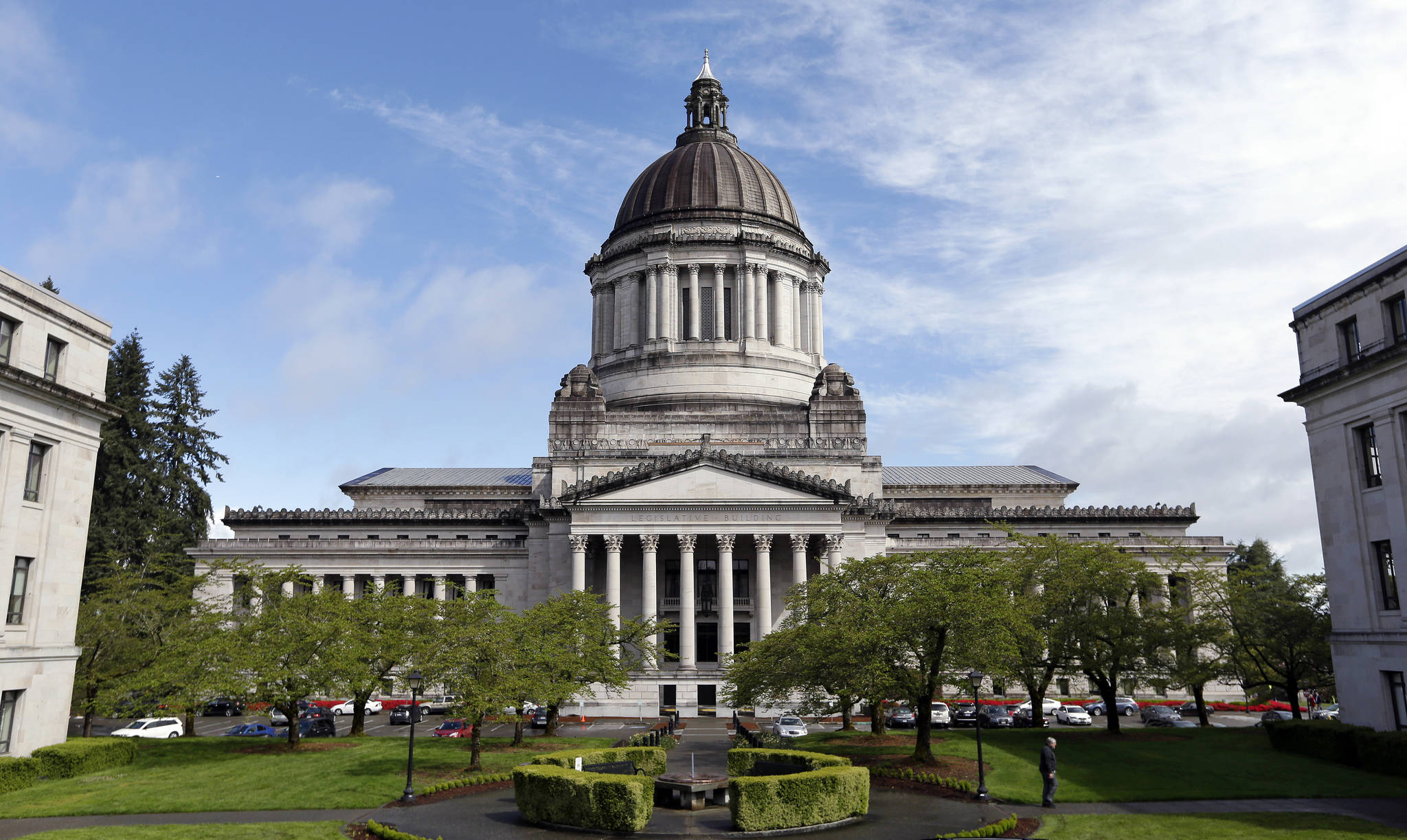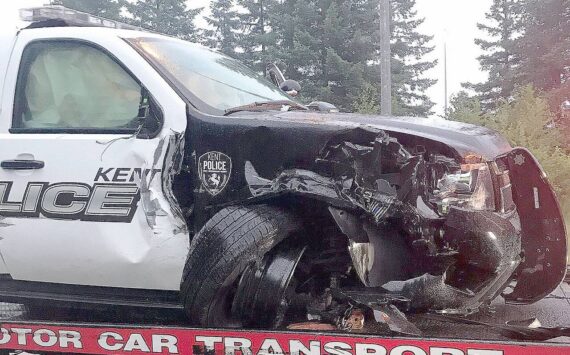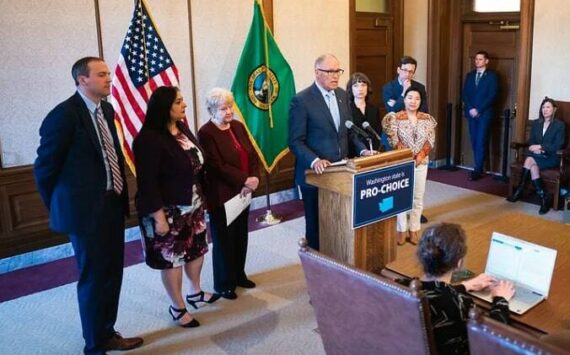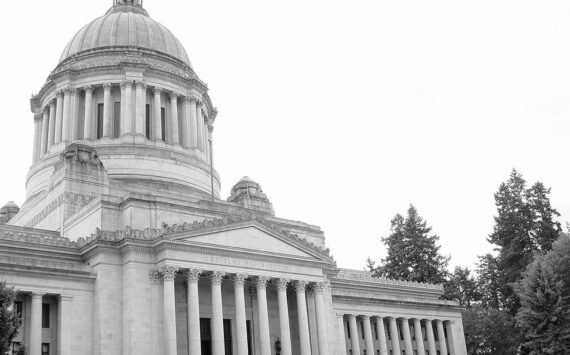OLYMPIA — A 30-day special session will conclude Tuesday with state lawmakers stalemated much as they were when it began.
Democratic and Republican lawmakers are slated to adjourn at 11:30 a.m. without an agreement on how the state will adequately fund public schools as demanded by the state Supreme Court. They also still need to cut a deal on a new two-year budget for the operations of state government.
Gov. Jay Inslee intends to speak with party leaders and budget writers in the House and Senate Tuesday morning and later discuss his plans for a second special session at a news conference. Lawmakers anticipate he will start the next extra session Tuesday afternoon.
He will have a lot more to say about the status of negotiations, wrote Jaime Smith, Inslee’s communications director, in an email.
There hasn’t been a great amount to share thus far.
“We are not in a significantly different place than we were 29 days ago,” said Rep. June Robinson, D-Everett, in a mid-day conversation Monday. “Yes, there is progress, and no, a deal is not going to be announced in the next 24 hours.”
Robinson is on the budget negotiating team for the majority House Democrats. It has been engaged in regular conversations and exchanges of offers on aspects of the budget with its Republican counterpart in the GOP-led Senate.
House Majority Leader Pat Sullivan said the majority parties in the two chambers “are much closer than we were on Day One” concerning school funding but far less so on the operating budget.
“We can’t go at the same pace we’ve been going at for the last 29 days,” on the budget, he said. “I think we’re to the point now where people want to make bigger offers.”
The 105-day regular session ended April 24 with House Democrats and Senate Republicans unable to agree on a state budget or how to satisfy the court’s McCleary mandate to provide public schools with ample funding and end school districts’ reliance on local property tax revenue to pay for basic education.
They are stuck on how much money to spend and where the money will come from.
The Democrat-controlled House passed a two-year $44.6 billion spending plan for government that relies on $3 billion in new or higher taxes to pour into education as well as human service, health care and mental health programs. Their proposal would create a capital gains tax and boost the tax rate paid by thousands of businesses, both of which Republicans in both chambers oppose.
The Republican-led Senate has approved a $43.3 billion blueprint containing a new statewide property tax to cover the state’s share of school funding now paid with local property tax dollars. This new tax also requires approval of voters in November. Democrats oppose the new tax and also are concerned putting it to a vote places any budget deal at risk of getting upended if the tax is rejected.
Most of the focus between the chambers is on the education funding front. Eight lawmakers, two from each caucus, have been meeting since mid-March to hammer out an approach to pass muster with the state Supreme Court and win backing of a majority in the Legislature, plus the governor.
House Democrats have a blueprint to put in about $2 billion more in the next two years, most of which will go to handle the state’s share of teacher pay. Their plan also preserves local school district levies at pretty much existing levels.
The Senate Republicans’ approach would drive $2.4 billion into schools in the next budget. They eliminate local levies in 2019 and allow them to restart in 2020 at a much lower rate than allowed in Democrats’ plan.
House Minority Leader Dan Kristiansen said Monday the group is “making headway” and once an accord is reached it won’t take long to wrap up everything else.
“Hopefully we can get this thing sewn up in the next couple weeks,” said Kristiansen, R-Snohomish.
This will be the fourth time in Inslee’s tenure and 26th time since 1980 that legislators could not finish without at least one extra session.
Lawmakers took until June to write new budgets in 2013 and again in 2015. Both times they reached deals barely in time to avoid a partial shutdown of state government. The 2015 session set a record as it lasted 176 days and spanned three special sessions.
A positive revenue forecast in June 2015 helped bring about an end to the legislative marathon. Two political maneuvers also catalyzed negotiations.
The first occurred May 28 when Senate Republicans introduced Version 2.0 of their budget moving them closer to House Democrats on a number of matters including the level of spending. The second came in mid-June when Inslee publicly dropped his demand for a capital gains tax which he and House Democrats had insisted be part of the final deal.
Many lawmakers think similar maneuvers may be coming to accelerate talks this year.
“I think we all know how to get out of here,” said Sen. Steve Hobbs, D-Lake Stevens, who had to travel to Olympia Monday when Republicans scheduled a committee hearing on two gubernatorial appointments to an advisory board.
Robinson declined to say if she’s anticipating a reprisal of those 2015 events.
“Clearly they need to move on revenue and we will need to move on spending,” Robinson said. “We need to move to each other’s positions but I don’t anticipate significant movement in that direction in the next day.”








